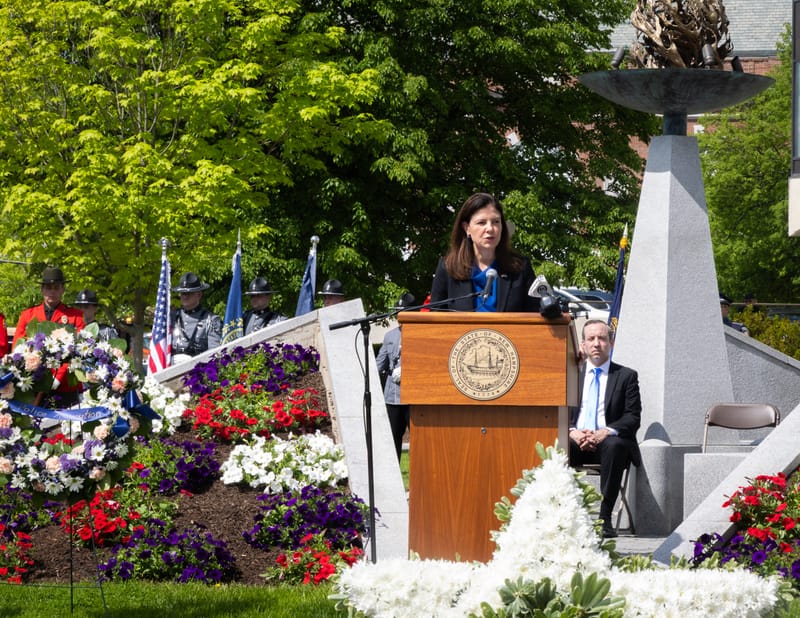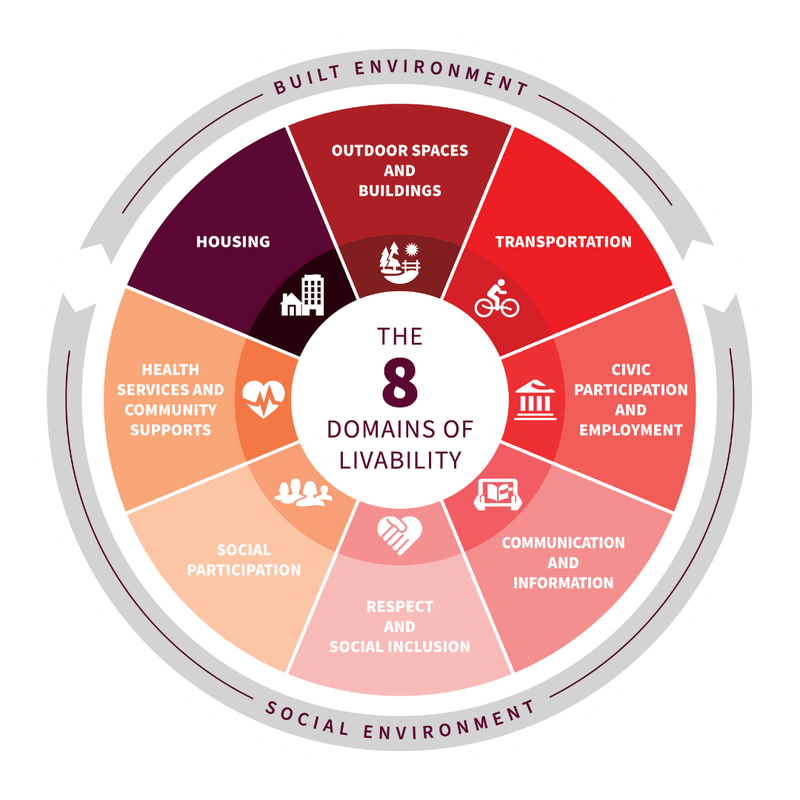Informed voters wanted
In 50 days, we will be heading to the polls to choose a new President and Vice-President, as well as members of the House, and in some states Senators, and in states like New Hampshire, Governor, Executive Council, State Representatives, State Senators, and County offices. It is often said that “thi
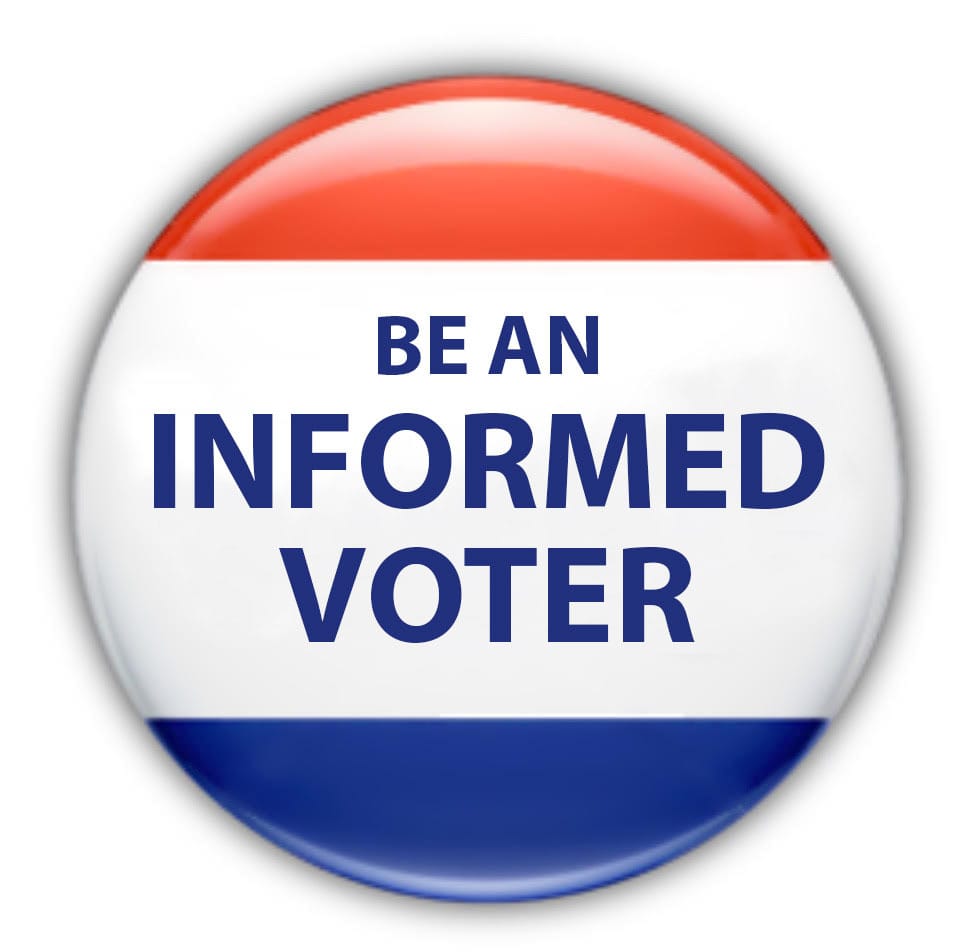

In 50 days, we will be heading to the polls to choose a new President and Vice-President, as well as members of the House, and in some states Senators, and in states like New Hampshire, Governor, Executive Council, State Representatives, State Senators, and County offices. It is often said that “this election is the most important of our lifetime,” to which I usually laugh, but believe that this one may be because our choices represent two very different directions for our state and country.
I used to tell people to simply vote, because after all, we have the right to be heard, so we should take advantage of it. Plus your vote represents the direction you want for our state and country. Although I still believe that people should vote, I strongly believe that they should be informed voters. In my opinion, being an uninformed voter is as bad as, if not worse, than not voting at all. When people complain to me about the state of affairs after an election – or complain about our leaders – I ask the person if they cast their ballot as an informed voter. Unfortunately, more times than not, the person did not vote or was not informed.
Luckily, it is easier than ever before to research candidates as well as fact-check claims. I am often told by people that they don’t have time to research so they let others do it for them. That my friends is a mistake…you should do your own research. It’s not only about us or our generation, it’s about future generations. So I think taking some time from, let’s say scrolling or streaming, to become an informed voter is vitally important. There are many ways to find fast and easy answers.
Why Informed Voting Matters: Researching Candidates Before Casting Your Ballot
Voting is one of the most powerful tools citizens have in shaping their communities, states, and countries. Every time someone casts a ballot, they play a direct role in determining who will make decisions that affect every aspect of daily life—from education and healthcare to national security and the environment. Despite the significant power vested in voters, many fail to thoroughly research candidates before voting. Some vote based on a party label, others on vague impressions or emotions, and some don’t vote at all.
The importance of informed voting cannot be overstated. Voting should not just be a civic duty but an exercise in thoughtful deliberation. Researching candidates is crucial to ensure that the leaders we elect truly represent our values and will implement policies that benefit society.

The Emotional Factor in Voting
Emotions have always played a role in politics. Political campaigns are designed to appeal to voters’ feelings, whether it’s through fear, hope, anger, or pride. According to research, emotional decision-making plays a significant part in elections. Studies have found that about 60% of voters make decisions based primarily on emotions, rather than a rational evaluation of policies or candidates. This number underscores the importance of understanding how emotions influence voting behavior and why voters should strive to counteract this by researching candidates thoroughly.
Emotions, while natural and often powerful motivators, can distort perceptions of candidates. For example, charismatic leaders who excel in public speaking may capture attention and votes even if their policies are ineffective or harmful. Likewise, negative emotions, like fear or anger, can lead voters to reject candidates who actually align with their best interests.
While it’s impossible to completely separate emotions from politics, voters should recognize the influence emotions have on their decisions and take steps to balance this with factual, issue-based evaluations.
The Role of Names and Familiarity in Voting Decisions
A surprising number of voters are often influenced by factors that have little to do with a candidate’s qualifications or positions. These factors include things like name recognition, the recency effect, and gender implications of a candidate’s name.
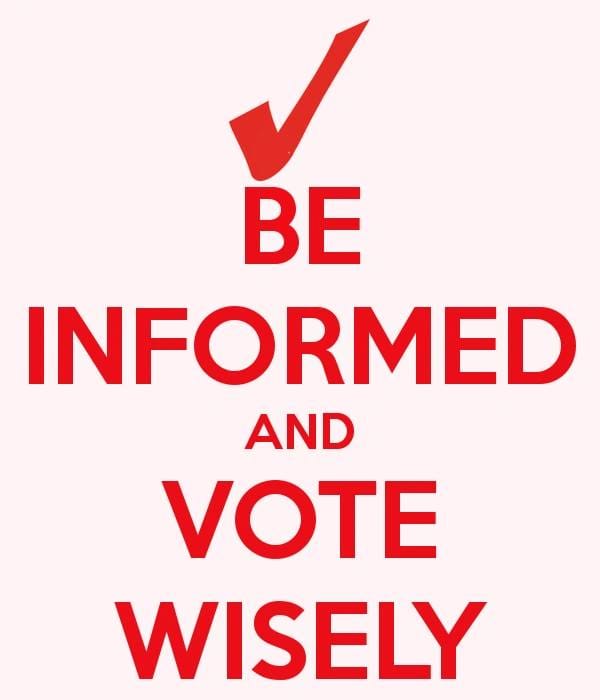
Name Recognition
One of the most powerful influences on voting behavior is name recognition. Voters are more likely to choose a candidate whose name is familiar to them, even if they know little or nothing about the person’s policies. This is partly because people tend to feel more comfortable with what they know. This effect is particularly strong in elections for local or lower-profile offices, where voters may have limited information about the candidates. In these cases, simply seeing a familiar name on the ballot can be enough to sway their choice.
Recency Effect
The recency effect is another powerful factor in how people vote. This cognitive bias means that people are more likely to remember and be influenced by information they encountered most recently. In the context of elections, this can manifest as voters making decisions based on the latest campaign ad, news story, or debate performance they saw before heading to the polls.
For example, if a candidate has a strong showing in a debate or releases a compelling campaign ad just days before an election, this may weigh more heavily on voters’ minds than earlier events. The timing of campaign messages can thus play a crucial role in swaying undecided voters or shifting opinions at the last minute.
Gender and Name Perception
Voters can also be influenced by a candidate’s name, specifically the gender implied by it. There is evidence suggesting that gender biases play a role in voting behavior. A study by Stanford University found that, all else being equal, female candidates are sometimes judged more harshly than male candidates, especially in high-stakes races.
Even the perception of a candidate’s name can have an impact. Voters may make assumptions based on the perceived gender of a name, favoring or disfavoring candidates based on deep-seated biases or societal expectations. For instance, some voters might be inclined to believe that a woman is less suited for leadership roles, even if they don’t consciously recognize this bias.
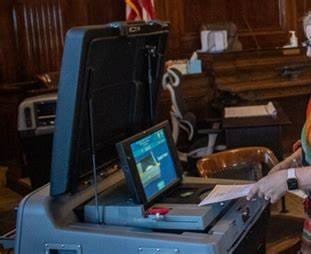
The Problem with Voting Based on Party Affiliation Alone
Party loyalty is another significant factor in how people vote. Many individuals cast their ballots based solely on party lines, without fully considering the candidate or the policies they support. Although political parties offer a framework for understanding candidates’ general ideologies, party affiliation alone is not always a reliable guide to a candidate’s policies, qualifications, or character.
Blind party loyalty can lead voters to overlook crucial information about a candidate’s specific stance on issues that matter to them. For example, two candidates from the same party can have vastly different views on immigration, healthcare, or economic policies. Simply voting for someone because they are a Democrat, Republican, or member of another party risks electing representatives who don’t align with your personal values.
The Role of Media and Misinformation
In the digital age, voters have access to more information than ever before. However, not all of this information is accurate or reliable. Political misinformation spreads easily, often through social media, and can create false impressions of candidates. It’s essential to cross-check information from credible sources to avoid being misled.
One of the dangers of relying solely on media coverage is that many news outlets—intentionally or unintentionally—promote bias. Sensational stories that appeal to emotions tend to receive the most attention, potentially skewing public perception of candidates. Even more problematic is the spread of fake news, which can dramatically impact elections. A study from MIT found that false news spreads 70% faster on social media than the truth, illustrating how quickly misinformation can distort public understanding.
Informed voters should make a habit of verifying facts, checking the credibility of their sources, and seeking out multiple perspectives. This effort ensures a more balanced and accurate view of candidates and their policies, ultimately leading to better voting decisions.
Why Researching Candidates is Crucial
- Policies Affect Real Lives: Candidates’ platforms and policies have a tangible impact on society. Whether it’s healthcare, education, or taxes, the decisions elected officials make affect everything from your paycheck to your children’s schooling. If you don’t take the time to research where candidates stand on these issues, you risk electing leaders who don’t represent your interests.
- Candidates May Not Be What They Seem: Charismatic speeches and campaign slogans can be misleading. Some candidates excel at presenting themselves as the “right choice” but lack the experience or ethics necessary for leadership. By researching their past actions, public service record, and any potential scandals, voters can make more informed choices. This step ensures that personal integrity, not just campaign polish, is part of the decision-making process.
- Local and State Elections Matter Just as Much as National Ones: While presidential and congressional elections receive the most media attention, local and state elections often have a more direct impact on voters’ daily lives. Governors, mayors, and local council members decide on issues like housing, public safety, and infrastructure. Judges, school board members, and state legislators play critical roles in shaping policies that affect everyday life. Thoroughly researching candidates for these roles is crucial for ensuring competent and fair governance.
- Protecting Democracy: At its core, voting is about maintaining a healthy democracy. Democracies function best when citizens are informed, engaged, and active participants in the political process. Voting for candidates without researching their backgrounds, policies, and character undermines the democratic process. It may also contribute to the election of leaders who don’t govern in the public’s best interest, leading to corruption or ineffective governance.
How to Research Candidates
- Look at Multiple Sources: To get a comprehensive understanding of candidates, voters should consult a variety of sources, including official campaign websites, non-partisan voter guides, news articles, debates, and interviews. Relying on a single source of information, particularly one with a known bias, can skew your understanding of a candidate.
- Examine Voting Records and Public Statements: For candidates who have held office before, their voting records can be a clear indicator of how they might perform in the future. Compare their voting history with their campaign promises to identify inconsistencies. Additionally, reviewing public statements and interviews can provide insight into how candidates handle complex issues and whether their stances align with your values.
- Look for Third-Party Ratings: Various non-partisan organizations provide ratings or endorsements based on candidates’ stances on specific issues. For example, environmental organizations may score candidates on their support for climate change legislation, while civil rights groups may rate them on their voting record regarding social justice. These ratings can help you gauge where candidates stand on issues you care about.
- Watch Debates: Political debates offer voters a chance to see candidates interact directly with each other, often under pressure. Watching debates gives insight into how candidates handle criticism, explain their policies, and engage with opposition. While debates alone should not be the sole basis for a decision, they are a valuable tool in understanding a candidate’s competence and demeanor.
- Consider Endorsements and Funding Sources: While endorsements from prominent figures or organizations can offer insight into a candidate’s alliances and likely policy directions, funding sources can also reveal much about who influences the candidate. Researching where candidates receive their campaign donations from can provide insight into their priorities and potential conflicts of interest.
The Consequences of Not Researching
Failing to research candidates can have significant long-term consequences. Voting for candidates who don’t represent your values, or who are unqualified for office, can lead to policies that damage communities, disenfranchise vulnerable populations, or weaken important institutions. Additionally, uninformed voting can encourage a political system that values superficial qualities—like appearance, charm, or wealth—over competence, integrity, and vision.
In extreme cases, uninformed voting can erode democratic norms. Candidates who prey on emotions or spread misinformation can undermine trust in government, deepen political polarization, and threaten democratic institutions. Voters must remember that democracy is not guaranteed; it requires active, informed participation to thrive.
Conclusion: The Power of an Informed Vote
Voting is more than just a right—it’s a responsibility. In a world where emotions and misinformation often dominate political discourse, it’s more important than ever for voters to approach the ballot box armed with facts. Researching candidates ensures that elected leaders truly reflect the values and needs of the public.
By taking the time to understand where candidates stand on important issues, examining their past actions, and considering their ability to lead, voters help protect the integrity of the democratic process. When voters are informed, they can hold leaders accountable and make decisions that lead to a stronger, more just society for all.
Email comments to me at bchicoinemht@gmail.com


